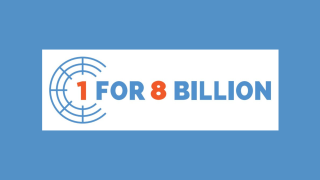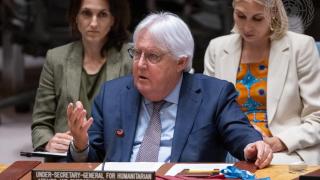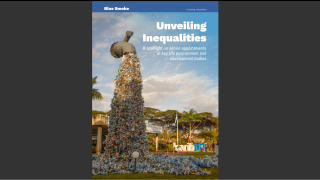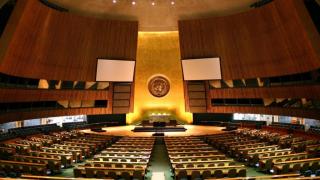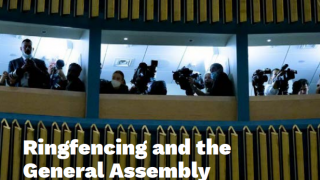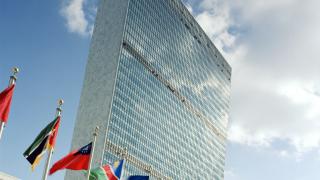
UNA-UK's Executive Director, Natalie Samarasinghe, has given evidence to an International Relations Committee inquiry on UK priorities for the new UN Secretary-General. Her submission, which covered a range of improvements from UN peacekeeping to the importance of merit-based UN appointments, is now available online.
The Committee's inquiry solicited submissions from Government and civil society on what the priorities should be for the UN Secretary-General going forward. During an oral evidence session in July, chaired by Lord Howell, Natalie Samarainghe stated that the Secretary-General plays a crucial role as leader of the Organisation, but recognised that she/he is also confined by its rules and processes. Natalie suggested that Antonio Guterres, who was recently confirmed as the next Secretary-General, should focus on areas where he can add real value:
He can start conversations, provide some thought leadership, give priorities to certain issues and give air to certain issues. In very practical terms the Secretary-General can work on negotiation and mediation – that is a huge priority
Natalie went on to consider that the UN Secretary-General should "try to move away from the system of certain posts being allocated to certain countries" and should instead push for meritocratic appointments. She recognised that it falls to the UK, as a permanent member of the Security Council, to set an example on this issue by supporting merit-based appointments and nominating skilled individual for top jobs.
However, Natalie argued that development reform should be Mr Guterres' top priority. She said that this might entail the politically challenging task of merging some UN agencies and mandates, and scrapping those which are ineffective. While this could cause pushback from donor and beneficiary countries who have vested interests, Natalie insisted that it would be worth the battle:
We talk about prevention and how we can prevent crises escalating. We can do that by improving the development and humanitarian system... [this] will require support from countries, such as the UK, that are important aid donors and that have a lot of influence in the multilateral system as a result.
In terms of UN peacekeeping, Natalie insisted that the Secretary-General must be realistic about what peace operations can practically achieve on the ground, pointing to last year's recommendations of the Independent High-Level Panel on Peace Operations:
The peacekeeping review carried out last year tackled this big question: should the UN get into difficult operations? Should it be more robust and should it deal with extremism and so on? The view of the panel that put together the review was no, it should not. The UN should be cautious because it is simply not geared up to do those things
Instead, said Natalie, peacekeeping missions should be deployed in countries where they have sustained support from all Security Council permanent members. In more fragmented contexts, the UN Secretary-General should seek to forge partnerships between UN peace operations and national or regional forces, with "better planning and phasing" to ensure clear mandates for peackeepers at specific points during a conflict.
Natalie concluded her oral evidence session by emphasising the importance of the UK Government's engagement at the UN in light of its forthcoming departure from the EU. She added that public demand for this has been exemplified by increased interest of the UK public in global issues such as peacekeeping, protecting the 0.7% aid commitment, and the UK leading by example on things such as human rights and arms control.

